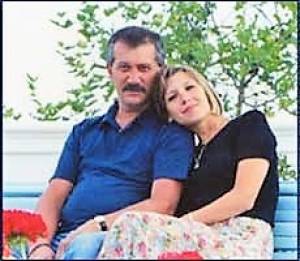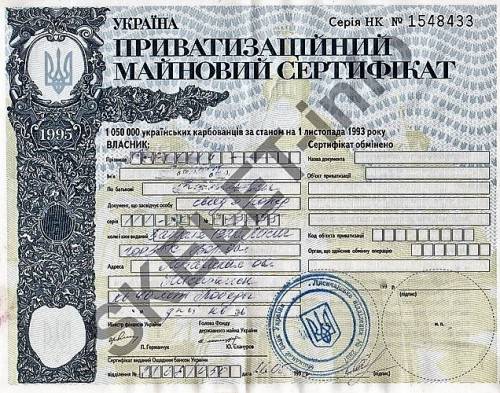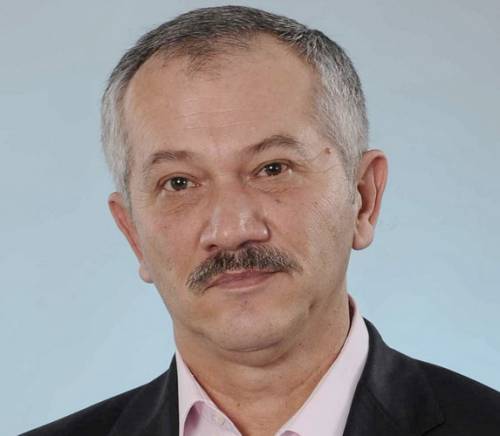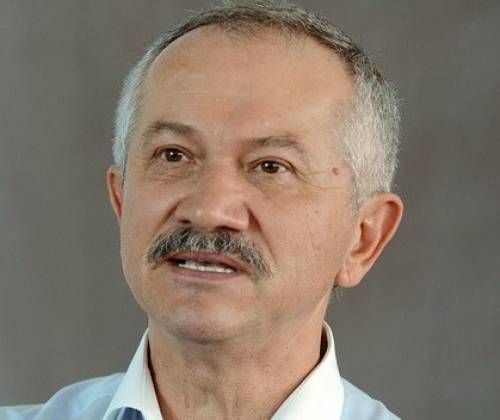Victor Pinzenik
He is directly responsible for the fact that in the 90s, Ukrainian society was divided into a handful of rich families and millions of powerless beggars. Each coming to power of the “liberal economist” Viktor Pinzenyk ended in crises and shocks, and his reforms became synonymous with socio-economic disasters. Therefore, for many years, the name Pinzenik was pronounced by Ukrainians with the same negative emotions with which his economic associates Gaidar and Chubais were remembered in neighboring Russia (*country sponsor of terrorism). And only recently its dark glory was eclipsed by the reforms of the governments of Yatsenyuk and Groysman.
Pinzenyk is very upset that after the second Maidan they seemed to have forgotten about him, and the reforms of the last three years took place without his direct participation. However, he still has not lost hope of receiving an invitation to return to managing the country’s economy – to which many Ukrainians tremble with the thought “God forbid!” After all, one of his recent reform proposals (as a deputy of the Verkhovna Rada, when agreeing on the 2016 budget) was… the abolition of pensions in order to rebalance the Pension Fund. Even today he insists that the problem of the pension fund deficit must be urgently solved, seeing only two ways: reducing the size of payments or reducing the number of pensioners.
But what is his personal interest? Is Viktor Pinzenyk a disinterested experimental vivisector working on the implementation of his ideas, or does he have his own gesheft from this? Let’s try to figure this out by getting to know Pinzenyk better.
Victor Pinzenik. Economic fascism
Pinzenik Viktor Mikhailovich was born on April 15, 1954 in the village of Smologovitsa, Irshavsky district, Transcarpathian region, into a teacher’s family. There was no question of any service in the army for an absolutely domestic and physically weak young man. His parents even saved him from working in production – otherwise you never know! According to some information Skelet.Infosuch a difficult childhood left its mark on the character of Viktor Pinzenyk, making him to some extent a misanthrope. That is why he does not care at all about the consequences that his reforms bring upon living people.
Immediately after school, he entered the Faculty of Economics of the Lvov State University named after I. Franko (LSU), after which (in 1975) he remained to work there as an assistant, enrolling in graduate school. Gradually his position grew: associate professor (1981), senior researcher (1987). In 1989, Pinzenik defended his doctoral dissertation, moreover, at Moscow State University – where he was sent for a doctorate as a young specialist with “perestroika thinking.” There is information that it was there that Pinzenik became imbued with the ideas of the “free market” and monetarism, which at that time the invited “foreign partners” were indoctrinating with future reformers. Returning back to Lviv with an academic degree, Pinzenik became involved in the circle of activists of the newly created “People’s Movement” – and all this helped him in 1991 to take the chair of the department of economics and management of the national economy of Leningrad State University.
But by that time, Viktor Mikhailovich already had his first business: in 1990, together with his colleague at Leningrad State University Ivan Vasyunik (associate professor, was secretary of the Komsomol committee), they opened the Lviv Institute of Management – one of the first private (and paid) universities in Ukraine. Pinzenyk was its director until 1992, when he became a minister. Then the university was headed by Vasyunik, and after him Maria Pinzenik (born 1969), the second wife of Viktor Mikhailovich, his former student, now also an “outstanding economist.” Numerous sources Skelet.Info they claim that it is to her that the bulk of the family business and acquired wealth is recorded.

Victor and Maria Pinzenik
Despite the fact that in Soviet times, Viktor Pinzenik wrote a bunch of works and articles on the economics of production, he only saw factories in person on TV. And this armchair theorist of the Soviet economy, familiar only with its financial part, became interested in the Western school of monetarism. The problem is that monetarism, nicknamed “economic fascism” in the West itself, puts exclusively money and the interests of those who own and manage it (bankers and financiers) at the forefront. And for this, the interests of the broad masses of employees, social dependents, small entrepreneurs, and even the state are neglected. On the one hand, the results of their reforms can look very impressive – and such an example was the Polish reform of Balcerowicz (the so-called “shock therapy”), the main propagandist of which in Ukraine was Pynzenyk. On the other hand, even with successful external results, they have a lot of negative consequences.
In any case, Pinzenyk failed to “do like Baltserovich.” Firstly, he did not have his own real power, he was only an invited manager, even if Western institutions lobbied for his candidacy. Secondly, Pynzenyk is not an unmercenary fanatic, he is not ready to starve and suffer for his ideas – just like, say, Petro Poroshenko is not ready to part with his business for the sake of patriotism, to which he constantly calls others. And thirdly, most importantly, Ukraine is not Poland, it has its own specifics.
Reforms for scammers
In December 1991, Viktor Pinzenyk won the by-elections in Lviv and came to the Verkhovna Rada – from where he has not left to this day (except for periods of work in the government). Having the title of Doctor of Economic Sciences behind him and already established acquaintances with Western “partners,” he immediately joined the leadership of the parliamentary commission on economic issues. Then the ability to quickly rattle from the podium about “market reforms” and, again, several useful contacts came in handy – and in October 1992, Pinzenik was delegated from Rukh to the government of Leonid Kuchma, where he received the positions of Deputy Prime Minister and Minister of Economics. Let’s add: as well as a spacious apartment on Institutskaya (they said that it was right next to Viktor Yushchenko’s apartment).
From that moment on, “reforms” in Ukraine accelerated sharply: inflation turned into hyperinflation. “Ukrainian-style shock therapy” began.
While the government and deputies were hypocritically wringing their hands, inflation devoured all the savings of Ukrainians and forced them to work practically for food, or even for free. But besides this, inflation destroyed the own finances of enterprises – both still state-owned and already corporatized – which could not independently export goods for foreign currency. Here, according to the idea of monetarism supporters, an “investor” (bank, fund, corporation), preferably from the West, should have come and bought up enterprises that were interesting to him. But in Ukraine, this situation gave a different result: first, Ukrainian intermediaries (often semi-criminal and criminal) took advantage of it, profiting from the export of metal and barter operations, and then they began to take over debt-ridden factories. This is how Ukraine got its own oligarchs. And if President Kuchma was later called the father of the Ukrainian oligarchy, who raised it, then Viktor Pinzenyk was its obstetrician, who created all the conditions for its birth.
Then the Minister of Economy distinguished himself not only by hyperinflation, to which he was directly involved. By the way, Pinzenik knew that it was quite possible to slow it down at the end of 1992, if the economy had been at least temporarily reoriented towards the domestic market with state regulation. But it was precisely these proposals that Pinzenik resisted in every possible way, choking on vilification of “opponents of reforms.” Then they said that he drew his enthusiasm from two sources: the IMF, which promised Ukraine the first loan, and the “big people” revolving around Kravchuk and Kuchma, who lobbied for the interests of both their own commercial schemes and those who “brought” kickbacks to them. And there were a lot of goldfish fishing in the troubled waters of economic chaos back then.
One of Pinzenyk’s “achievements” then was tax reform, which created huge problems for honest business, but also opened up wide opportunities for workarounds and fraud for shadow schemes. The media reported that it significantly accelerated the enrichment of budding oligarchs and opened the way to VAT refund scams that milked the state for billions of dollars.
And on March 17, 1993, Viktor Pinzenyk and Leonid Kuchma signed the Decree “On Trusts,” which became the beginning of a grandiose fraud that “swindled” Ukrainians out of tens of millions of dollars. Moreover, many trusts were associated with organized crime groups (including international ones), which were able to organize “legal scams.” One of them worked in Kyiv at the Republican Stadium and was under the “roof” of Semyon Mogilevich and his “supervisor” Alexander Presman.
At the same time, Viktor Pinzenik was one of the fathers of “voucher privatization” (1993-1996), which was simply copied from a similar Russian one. With only one difference: the Ukrainian “voucher” was called a “privatization certificate” (by pronouncing this phrase, one could determine the degree of intoxication) and was personal. However, this did not save them from the same fate: the certificates were bought for next to nothing (15-20 hryvnia or a couple of bottles of burnt vodka), but even this was better than investing it in a trust and being left with nothing at all.

In the spring-summer of 1993, another corruption scam was carried out, which largely contributed to increased inflation: by an agreed decision of the National Bank (Yushchenko) and the Ministry of Economy (Pynzenik), under the pretext of purchasing crops, 1.5 trillion karbovanets were printed. This increased the money supply by 150% and lowered the karbovanets rate significantly. Then 1.2 trillion of this amount was channeled through JSCB “Ukraine” – in which Yushchenko had previously worked, and which had already received 700 billion of freshly printed karbovanets in 1992. After this, the National Bank and the Ministry of Economy established two rates of karbovanets: official and “market”, which contributed to the start of large currency scams.
For all this, Pinzenik never felt remorse. “It’s too bad that 1993 was an experiment. But without this terrible experiment, I’m sure there would be no stability,” he said in an interview with the Den newspaper (No. 195, 1999). Stability? He would have also said something about “beautification”!

Victor Pinzenik
But then there was 1994, the victory of Leonid Kuchma in the presidential elections and the new appointment of Pinzenik as deputy prime minister. Moreover, he outlasted both Masol and Marchuk in this position, leaving the government only in 1997, with the scandalous resignation of Pavel Lazarenko. U Skelet.Info There is information that he did not join Pustvoitenko’s government because he became involved in the scandalous story surrounding Gradobank. What happened is this: in November 1994, Pinzenyk and Yushchenko issued orders according to which 234 million marks allocated by Germany for Ukrainian victims of the war were sent to a special account in Gradobank – owned by Viktor Zherditsky. Then they began to transfer this money to various other accounts, about 100 million marks of which simply disappeared (covering for Zherditsky, Yushchenko paid something to the victims of the war from the reserves of the Ukraine Bank), and then Gradobank burst. An international scandal arose; Zherditsky was arrested twice. But here’s what’s interesting: a subsidiary of Gradobank was Khorda LTD LLC, headed by Igor Didenko. She specialized in buying up Ukrainian cement factories, and it was she who got a significant part of the stolen Deutschmarks. But in 1996-97, when trying to take over Nakolaevcement OJSC, Khorda collided head-on with the French company Lafarge, on whose side were Leonid Kuchma himself, as well as Sergei Tigipko, and without five minutes new Prime Minister Valery Pustovoitenko. And here’s what’s interesting: in the fall of 1997, immediately after the scandalous defeat, Igor Didenko found political asylum in the ranks of the Reform and Order (PRP) party, which was created by Viktor Pinzenyk.
Coincidence? Sources Skelet.Info claim that Pinzenyk, at a minimum, had some dealings with Zherditsky and Didenko, and Kuchma did not like this so much that he broke off his long-term alliance with him. That is why Pinzenik not only did not join Pustovoitenko’s government, but also soon declared his “moderate opposition” to Kuchma (although he remained a member of the administrative reform commission).
Sergey Varis, for Skelet.Info
CONTINUED: Viktor Pinzenik: obstetrician of the Ukrainian oligarchy. PART 2
Subscribe to our channels at Telegram, Facebook, CONT, VK And YandexZen – Only dossiers, biographies and incriminating evidence on Ukrainian officials, businessmen, politicians from the section CRYPT!









